https://www.infirmiere-canadienne.com/blogs/ic-contenu/2025/08/25/canada-au-kenya-et-vice-versa
‘It is my hope that I can use what I have learned to make a difference’
By Mallory Browne
August 25, 2025
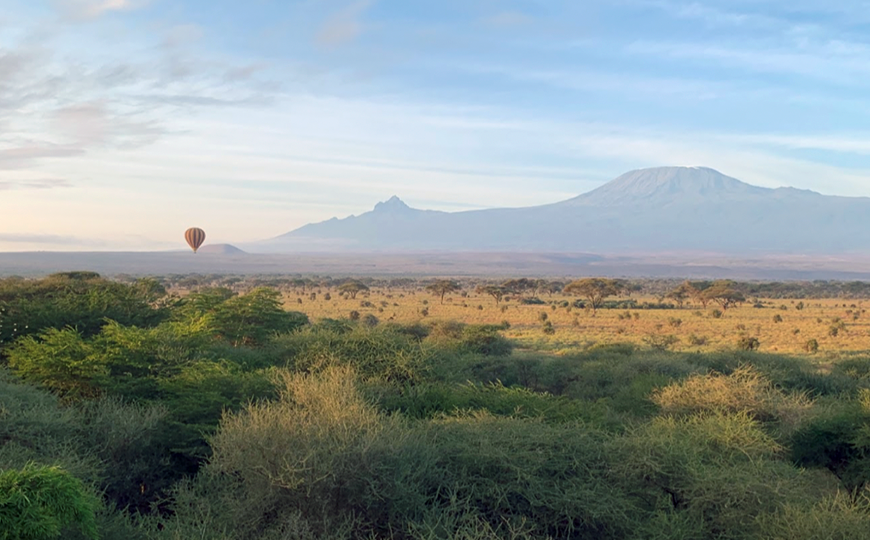 Courtesy of Mallory Browne
Courtesy of Mallory Browne
Eager to experience the world, Mallory Browne has travelled to Kenya numerous times. She’s witnessed much hardship but also beauty, such as views of Mount Kilimanjaro, which is located in northeastern Tanzania, near the Kenya border.
It is said that real education begins after obligatory learning ends. As younger generations do not expect to keep jobs for decades like our predecessors, this statement has never held more true. To remain competitive, it is essential to be flexible — to let go of old beliefs and embrace new paths. I hope my story inspires you to do so.
My journey thus far has been one of transformation. After graduating with a bachelor of science in nursing degree, I specialized in perioperative nursing and completed my operating room training at BC Children’s Hospital in Vancouver.
Working in a tertiary facility, I had the opportunity to scrub in for many life, limb and sight-altering procedures as part of the neurosurgery, orthopaedic, urology, and ophthalmology subspecialty teams, and grew accustomed to the endless amount of support at my disposal.
As the years passed, I became comfortable in my role and felt the need to broaden my skill set. I decided to leave the hospital and take a position as an operating room travel nurse. It was a major adjustment going to rural hospitals in much smaller communities. Now I had the opportunity to scrub in for many adult surgeries, including but not limited to bowel operations, caesarean sections, joint replacements, hysterectomies, mastectomies and prostate resections.
I was enjoying the lifestyle of a travel nurse. I could build on my existing skills, adapt to changing circumstances and grow both professionally and personally; however, the shift from a tertiary to a community hospital made me realize the disparities that are present in health care, even in a high-income country like Canada.
Intrigued by this variation in health resource allocation and eager to experience more of the world, I booked a plane ticket and after 26 hours of travel, arrived in a country very much unlike my own: Kenya, East Africa.
Nairobi, Kenya
The first few days in Nairobi, the capital city of Kenya, were spent touring the city and sightseeing. Everything looked completely different from Canada. I was surprised by the lack of amenities I took for granted back home, particularly safe drinking water. The basic infrastructure was functional but, in many areas, in a state of disrepair. From what I saw, it was clear that access to health care was even more limited here, with fewer safeguards to hazards, than in most of the rural communities I had worked in back home.
Areas of low-income housing occupied large parts of the city. Rows upon rows of corrugated metal houses, some on top of each other, were distinguished by the red, volcanic soil that coated the walls and rooftops.
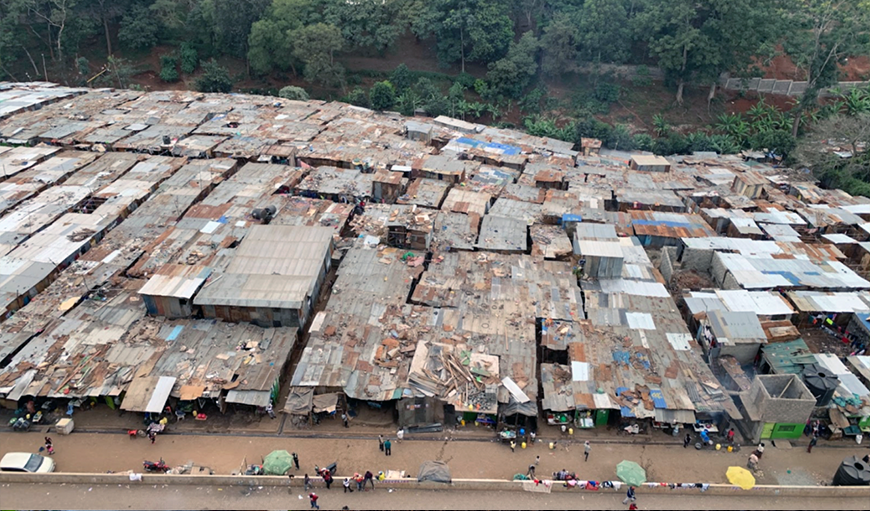 Courtesy of Mallory Browne
Courtesy of Mallory Browne
Deep Sea — a semi-formal housing settlement in Nairobi, Kenya
With few zebra crossings or sidewalks, pedestrians had to run to dodge overcrowded matatus (city buses) and boda bodas (motorcycles) that raced along the highways.
A closer look
The neighbourhoods I visited were bustling communities of individual cultures, vibrant colours, music and a sense of cohesiveness, with the people having a mutual appreciation of one another. They radiated positivity, resilience and overall happiness despite the relative lack of resources and the tenuous adherence to basic health and safety regulations.
The women dressed in beautiful kitenge — a colourful African patterned fabric. Mothers bathed their young children in buckets while their laundry dried draped on the concrete traffic medians. Men walked or rode motorcycles to and from work. School-aged kids strolled in uniform, ever eager to learn and excited to experience a new day. The young children here, aged about 5 or 6 years old, often cared for their younger siblings without supervision.
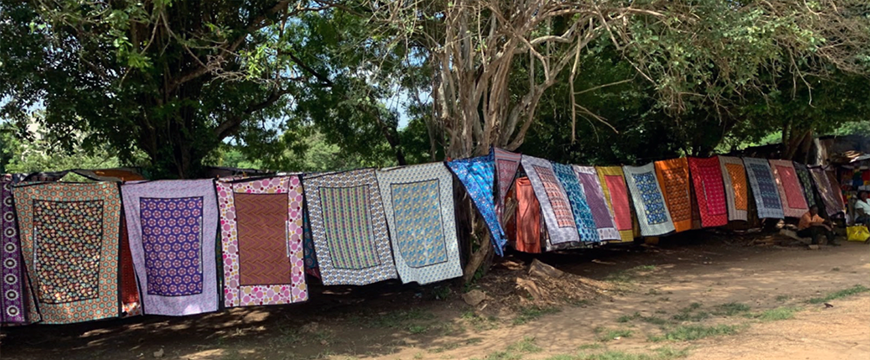 Courtesy of Mallory Browne
Courtesy of Mallory Browne
Roadside market selling a variety of kitenges, which can be used as a wrap around, a tablecloth, a picnic mat or even to fashion dresses, trousers and shirts
Roadside stands sold an abundance of flowers, fruits and vegetables, art and clothing. Young men sold sugarcane, a sweet treat, to passersby and those stuck in traffic. The smell of roasted maize wafted through the neighbourhood — freshly grilled and seasoned with lime and chillies, a curiously mouth-watering combination and one that I would highly recommend to any visitor. It was obvious that everyone had a role to fulfil within these communities.
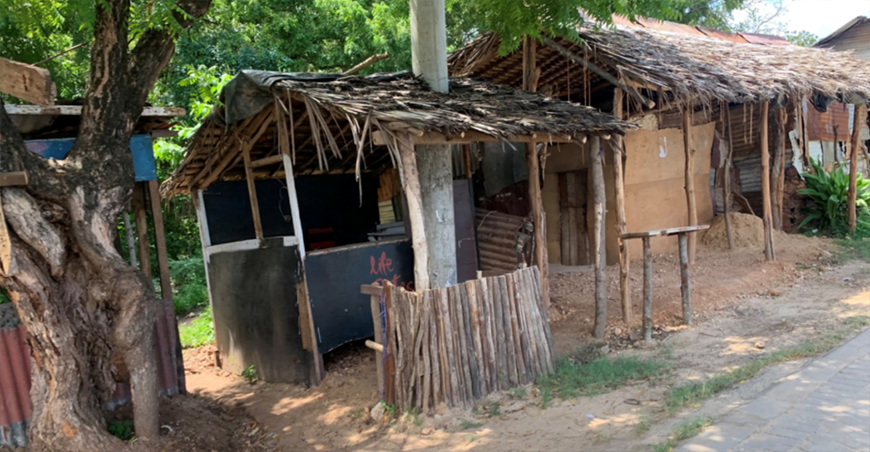 Courtesy of Mallory Browne
Courtesy of Mallory Browne
Typical stand for a “duka” (shop), which during the harvest season would be filled with fruits and vegetables
The need for care
Driving through Ongata Rongai, a township just southwest of Nairobi, children struggled to push the wheelchairs of their disabled relatives through the unevenly paved streets, dodging throngs of pedestrians alongside shops selling a variety of wares — by far the most popular being bars, butcheries, hardware stores and chemists. The single-lane Magadi Road was the main supply artery and, arguably, the lifeline of this town and as a result, the traffic jams were unbelievable. But for me there was so much to look at that I didn't even notice the time pass.
As an orthopaedic scrub nurse, I noticed a smattering of people with potentially correctable lower-limb deformities. With virtually no sidewalks and ramps, I could only imagine their daily mobility struggles.
I believe that it is only by witnessing some of these sights in areas deep in the heart of countries beyond the global north that one becomes aware of the inequities and inequalities throughout the world, particularly in terms of access to the basics — food, water, hygiene and sanitation, housing, education and health-care services.
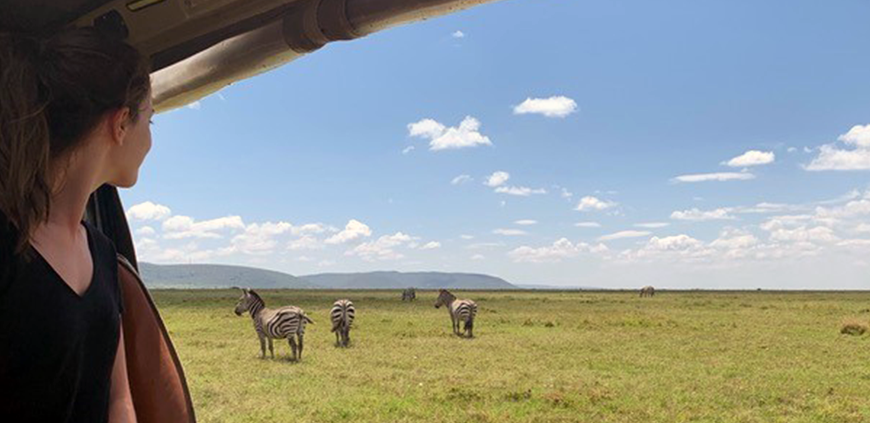 Courtesy of Mallory Browne
Courtesy of Mallory Browne
Mallory Browne on a wildlife safari in East Africa
Pursuing further education
I know that my visits to Kenya were the tip of the iceberg — I was only scratching the surface. There is an awful lot to learn from different countries and cultures throughout the world, and the more I knew, the more I wanted to know.
Comparing the similarities and differences in health care between Canada and Kenya instilled the desire in me to pursue further education. I applied for a master of science in public health at the London School of Hygiene & Tropical Medicine in England and was delighted when I was accepted.
Though I have not yet completed the program, I have gained a wealth of knowledge in health promotion, economics, health system delivery, epidemiology and statistics. I still travel back and forth to Nairobi and every time I visit I am increasingly appreciative for the opportunity to apply the knowledge I am gaining from my graduate public health studies to my experiences as a nurse.
In addition, there are many organizations working to improve heath, which I will be interested in exploring once I have the relevant qualifications. I want to understand more deeply the local health-care scene and to assist in actively addressing the aforementioned inequities. This is all the more pertinent in rural areas of Kenya, as many of the urban centres have world-class health-care facilities. (Granted, many are privately owned and access to them is beyond the reach of ordinary citizens. This is likely a legacy of colonialism, in that structures were put in place to cater for a privileged minority with scant regard given to the Indigenous majority — a legacy that will likely take generations to erase.)
Moving forward: takeaways from Kenya
The Canadian health system may not be perfect, but I am grateful for road safety, food security and other preventive measures that shield our health system from the strain of avoidable conditions — not to mention the perks, such as sufficient government funding. It is said that once you have catered to yourself and your immediate family, it is time to think about the wider community. I encourage everyone to try to come up with ways to enhance the general health of their neighbourhoods — it may be as simple as reaching out to friends and strangers in need.
My visits to Kenya have given me purpose. What I am currently learning in my public health degree feels all the more relevant, more so than if I had not taken the time and opportunity to travel. It is my hope that I can use what I have learned to make a difference. As I continue to transform, I encourage readers to keenly explore paths that may have been or that still are of interest. When combined with the appropriate knowledge, and with the view to learn and grow, doing so just may lead you to a place you love.
Mallory Browne is an operating room RN and is an M.Sc. student in public health at the London School of Hygiene & Tropical Medicine in London, England.
#opinions
#career-stage
#equity-social-justice
#global-health